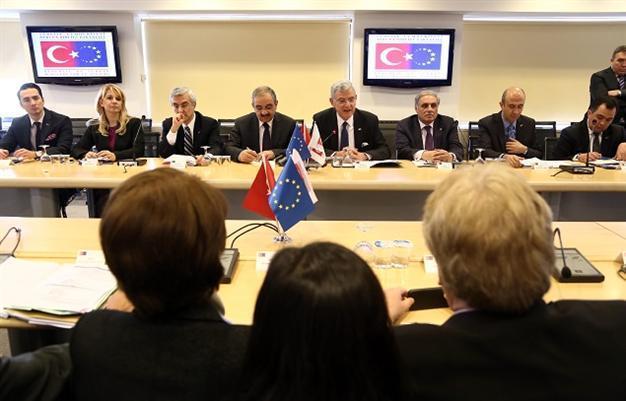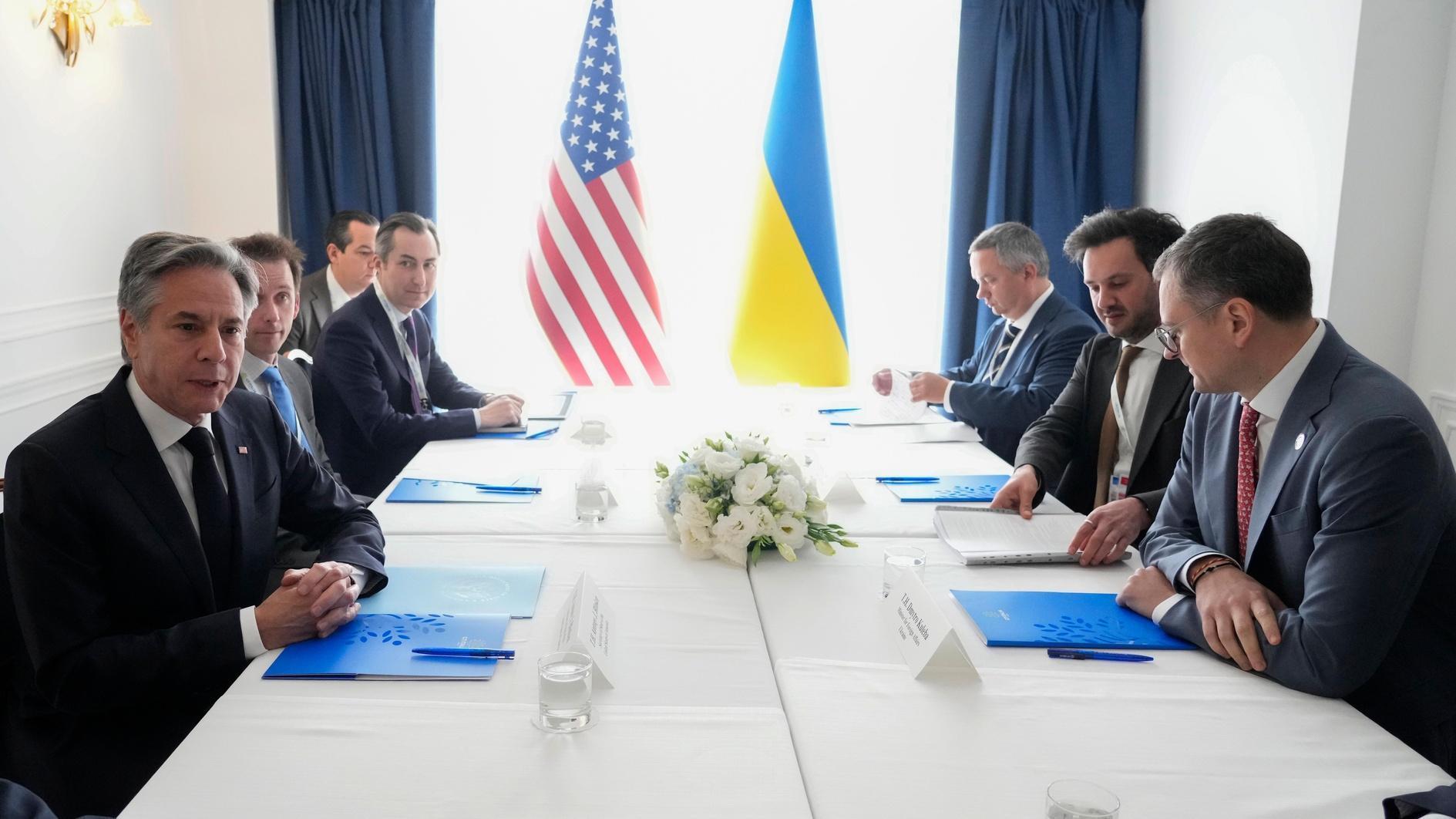Turkey and EU agree to update Customs Union

Turkey's EU Minister Volkan Bozkır met Elmar Brok, Chairman of the European Parliament Committee on Foreign Affairs, in Ankara on March 17. AA photo
Turkey’s Justice and Development Party (AKP) government and the European Union have quietly decided to upgrade the Customs Union which, in the long run, might serve to stop “corruption allegations” and also boost the country’s competitiveness.Talks about revising the Customs Union, which is in its 20th year, have long been on the agenda. Finally Ankara and the 28-nation bloc agreed on a road map last week, according to which the European Commission will first prepare an impact assessment report, diplomatic sources familiar with the issue told the Daily News.
Following the impact assessment report, which is expected to be ready by the end of the year, the commission will receive a mandate from member countries to start negotiating with Turkey, something that requires the consent of all of 28 members.
Turkey has long been complaining that while it is obligated to align with EU legislation, it cannot participate in decision-making in areas related to the Customs Union. Another issue of concern was about free trade agreements signed between EU and third countries. The refusal of third countries to conclude free trade agreements with Turkey has worked to the disadvantage of Turkey; the Turkish government is especially worried about the prospect of exclusion from the Transatlantic Trade and Investment Partnership (TTIP) between the United States and the EU.
As the two sides have not been able to find common ground for a long time, some Turkish ministers have even threatened to remove Turkey from the Customs Union.
Following intense talks between Ankara and Brussels, the EU has at last accepted the need to revise the Customs Union while Turkey, in return, revised its decision to refuse to negotiate on certain issues, such as the public procurement law.
Those readers familiar with Turkey will recall that in December 2013, an investigation into the sons of cabinet ministers over corruption in public tender construction projects in Istanbul alleged that bribes were paid to officials, who, in exchange, ignored zoning rules and approved contentious development projects. In September 2014, the charges against all suspects were dropped, with the AKP government claiming the corruption crackdown was politically motivated. Some believed the AKP, some did not, and some others preferred to ignore it.
Had Turkey had a more transparent public procurement law and a better functioning Public Procurement Authority – whose mandate has been amended more than 30 (!) times – we would not have had these allegations in the first place.
So the good news is that the public procurement issue will be back on the table for negotiating, which will mean that both the law on public procurement and the law on public procurement authority will be amended according to EU standards, which will hopefully shut the door to corruption attempts.
The possible advantages of the revision of the Customs Union are obviously not limited to corruption issues. If extended to cover services and agriculture in addition to procurement, the Customs Union will serve once again to boost Turkey’s competitiveness.
Widening the Customs Union to include services and agriculture would produce welfare gains of up to $2 billion, according to the estimates of the World Bank, which was tasked last year by Turkey and the EU to evaluate the Customs Union.
“By liberalizing trade in services in particular, Turkey could boost its overall competitiveness because the cost and quality of services matter as an input into manufacturing as well,” Martin Raiser, country director for Turkey of the World Bank, recently wrote.
But the widening of the Customs Union would also require that asymmetries in its design are addressed, such as Turkey’s absence from decision-making mechanisms, said Raiser in a blog published on March 17.
Raiser says this issue could be alleviated if Turkey were to be invited as an observer to more of the EU’s committees, including to key policy bodies such as the Trade Policy Committee or General system of Preferences Committee. “Informal information-sharing mechanisms, such as the Friends of Turkey groups, could also be considered,” he said.
Another area of concern that needs to be addressed is the TTIP. In the event of Turkey’s exclusion, the World Bank estimate of welfare losses is around $130 million. But, says Rainer, there is a flipside to this: “To the extent that TTIP includes liberal rules of origin and that the EU and the U.S. agree on a system of mutual recognition of quality standards, Turkey through its Customs Union with the EU could obtain significantly improved access to the U.S. market which would more than compensate the losses from preference erosion.” In short, the widening of the Customs Union will help prepare Turkey for potential accession to the TTIP.
According to Rainer, deeper economic integration between Turkey, the EU and the U.S. would be a good thing for all three parties.
This might not be so obvious to Washington and other capitals. Due to the Greek Cypriots, the commission might face difficulties in getting a mandate to negotiate the widening of the Custom Union.
Congress is not fond of Turkey, but widening the Customs Union and Turkey’s inclusion in the TTIP could prove the miracle recipe to get Turkey out of the middle-income trap. But for that Turkey, will need friends in Europe and in Washington.











